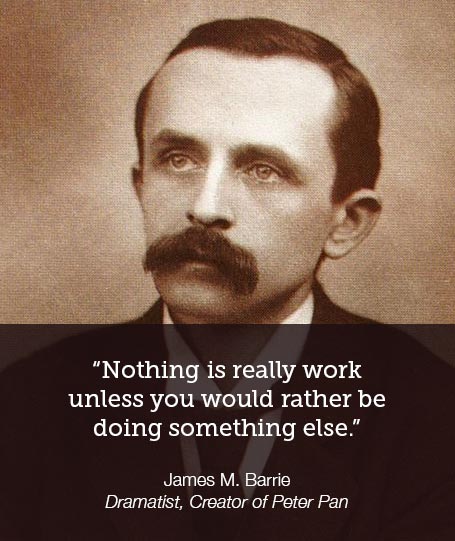There’s a danger lurking the game industry — the rise of the metric-driven game that aims to maximize monetization without consideration for how fun the game may be. Those sorts of games may make some money in the short term (especially if done quickly, usually by copying an existing type of game) but they don’t have a lasting value. Worse, such games tend to devalue the whole idea of game playing on a platform, and can lead to an exodus of players. That may be part of the reason why social games dropped in popularity, though the rise of mobile games accounts for the majority of the switch. Mobile games, though, are certainly suffering from this issue, and games on other platforms could be too. How did we get to this point, and what can be done about it
The rapid expansion of the game industry into new platforms, new markets, new business models and new demographics over the past ten years has resulted in a Cambrian explosion of games. This growth sparked the creation of many new game companies, as both developers and investors have sought to take advantage of the massive growth. The rush to create and grow new companies has inadvertently resulted in too many games and companies where the focus is on metrics, rather than fun.
It’s a terrific advantage for game designers to get large amounts of reliable data about how people are playing their games. In the past, the only information designers received was anecdotal, through reviews or the occasional letter. Now mobile and social games get incredible amounts of data from every player, and PC and console games are beginning to do the same. Designers can see exactly where players have difficulty, or it’s too easy, and tweak the game accordingly. Company execs have also seen how the game can be tweaked to improve revenue, watching the effect of adjustments to the design and how it alters income.
The danger that’s manifested all too often is that the metrics end up driving the development of the game. There are game companies whose raison d’être seems to be maximizing revenue by tweaking the psychology of game players. Sure, companies usually are trying to maximize revenue, but when you’re making games it seems that creating a fun game should be right up there among the top priorities. Shouldn’t it If it’s not, shouldn’t you be in some other business
Eventually gamers get tired of being played instead of playing. While free-to-play games make it easy for new players to enter, the vast array of free-to-play games available make it easy for people to switch to something else. We’ve seen this with many mobile games that appear on the charts, blaze brightly for a while, then fade. Former EA CEO John Riccitiello pointed out that we have yet to see a successful sequel to a mobile game, or a mobile game franchise that has had anywhere near the longevity or revenue of the best console or computer game franchises.

Console games are beginning to find out just how much the console gaming audience will accept microtransactions, with games like Forza 5 where you can pay for new cars. Most console games now have regular doses of DLC arriving, and we may see that DLC available in smaller and smaller pieces. How well will this work in the long term, and is there a point at which there’s too much DLC for a game We don’t really know the answers yet. We need to be careful how we find out those answers, though.
There are some wildly successful games using the free-to-play model on the PC, like World of Tanks and League of Legends. Those games are very different, but what they have in common is a focus on making the game fun and continuing to improve the fun factor. Wargaming CEO Victor Kislyi is proud of the fact that half of the company’s employees deal directly with customers, working in support or community roles. Kislyi does look at metrics, but stays away from constantly tweaking deals in order to squeeze a little more money out of users each month. He feels the game will do better in the long run by focusing on making it better and more fun, which will keep users engaged for the long term.
Adding fun to a game is extraordinarily difficult. It’s not a dial you can easily adjust to add 23 percent more enjoyment. It’s not a metric you can read directly, though you can infer the amount of fun people are having to some extent by the depth of their engagement with the game and the number of hours put in. Finding out exactly what it is that players enjoy about a game really requires conversation, and engaging with gamers on community forums, message boards and social media. Getting that information back to game designers is critical, but there are no guarantees. Fun is elusive, and magical, and sometimes you just have to get lucky to find it.
Games are now more than ever a long-term proposition, at least if you want the effort put into the game to really produce a substantial profit. Big publishers increasingly want every game they produce to be something that attracts and retains a large audience for a long time, with plenty of opportunities to sell things to the gamers and spin off other products. That can only happen when a game is really fun. All the marketing and brand extensions and DLC in the world won’t get an audience to stick around in the kind of numbers big publishers need. The game has to be great fun, with prospects of more fun to come in the future, to create the kind of audience publishers crave.
That fun factor is key for smaller developers, too. Yes, it’s hard to find an audience these days, and getting harder. If your game is fun, and you are patient, you can find and grow your audience over time through recommendations. (The caveat here is that many small developers can’t afford to wait a year or two for a substantial audience to develop, so this must be taken into account in the planning phases.)
Game designers, developers and publishers can only build lasting, long-term value with a fun game, and that has to be the core value for a game company to be around for the long term. Investors in game startups should be looking for the fun in what developers are proposing, not for just for their engineering talent or advanced analytic chops. Do that, and the rising cost of user acquisition won’t bother you. Let’s all have more fun with gaming, and the rapid growth of the game industry will continue.


